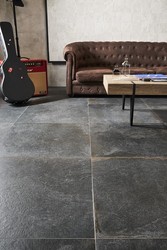Swimming Pools: Paint or Mosaic Tiles, Which to Choose?
Choosing the right coating for a pool is essential. Both paint and mosaic tiles offer different properties that can influence durability and maintenance. A comparison of both materials allows us to evaluate their advantages and disadvantages. The types of paint available and the characteristics of mosaic tiles will be analyzed to facilitate the right decision based on the needs of each pool.
The Importance of Pool Coating
The coating of a pool plays a fundamental role in both its functionality and aesthetics. The right choice not only improves the appearance of the space, but also affects its durability and the maintenance required over time.
Effects on Durability
The durability of a pool is directly related to the type of coating used. A quality coating can extend the life of the structure and protect it from adverse external factors. There are different materials that can be used, each with specific characteristics that provide greater or lesser resistance to variable weather conditions.
Influence on Maintenance
Maintenance is a key aspect that can be seriously affected by the type of coating chosen. A coating that requires less attention will allow you to enjoy your pool with greater peace of mind. On the contrary, materials that require frequent care can result in additional expenses and time invested in maintenance.
Leak Prevention
The ability to prevent leaks is another essential factor to consider. A suitable coating not only provides a physical barrier that makes it difficult for water to filter through, but also helps in the early detection of problems that could compromise the structure of the pool. This will reduce the costs associated with major repairs in the future.
Types of Paint for Coating Pools
The choice of the type of paint for pools is essential, since not all options offer the same characteristics or results. Below are the main types of paint used in this context.
- Chlorine Rubber Paint
Main Features
Chlorine rubber paint is one of the most popular and economical options for plastering concrete pools. It is characterized by its quick application and by providing good resistance to chemicals, which makes it a practical choice for coating these spaces.
Advantages:
- Economy in cost and material.
- Simple and fast application.
- Resistance to chemicals such as chlorine and algae.
Disadvantages:
- Requires frequent repainting, approximately every 2-3 years.
- Can wear off due to adverse weather conditions.
- Preparation of the area to be painted is essential for proper adhesion.
- Epoxy Paint
Properties and Resistance
Epoxy paint is another effective option for coating pools. It is characterized by its great durability and resistance, offering an effective barrier against moisture. Thanks to its formulation, this paint adheres firmly to the surface, which reduces the risk of leaks.
Long-Term Benefits
- High resistance to wear and impact.
- Greater durability than other types of paint, which means less repainting.
- Excellent performance against chemicals and extreme weather conditions.
Gresite as an Alternative for Cladding
Gresite has established itself as a popular option for pool cladding, thanks to its properties and aesthetic appeal. Below are its features and benefits that make it stand out from other alternatives.
Properties of Gresite
Durability and Resistance
Gresite is known for its remarkable durability, being able to withstand adverse weather conditions and wear caused by water and chemicals. Its composition of small glass tiles ensures that it remains in good condition over time, making it a viable long-term option.
Waterproofness and Tightness
One of the most outstanding features of pool tiles is their waterproofness. The non-porous surface prevents water absorption, which is essential to keep the pool watertight. This reduces the risk of leaks, which can be a common problem with other types of lining.
Aesthetic Aspects
- Variety of Colors and Designs
Pool tiles come in a wide range of colors and designs. This variety allows homeowners to customize the look of their pool to suit their tastes and the style of their home. Whether in vibrant blue tones or softer colors, there are options for all tastes.
Customizing Pool Design
The ability to create unique and personalized patterns is one of the great advantages of pool tiles. Mosaics can be arranged in different combinations, helping to make each pool unique and perfectly integrated into the desired environment.
Advantages of Gresite as a pool covering
- Lower Maintenance
Compared to paint, gresite requires significantly less maintenance. Its smooth surface does not wear or crack easily, which minimizes the need for repairs and allows you to enjoy your pool for longer without worries.
- Lower Algae Buildup
The structure of gresite makes cleaning easier, as its surface reduces the buildup of algae and dirt. This results in simpler maintenance and a pool that looks cleaner and more attractive all year round.
Disadvantages of Mosaic Tiles
- Installation Cost
While mosaic tiles offer many advantages, their installation cost is generally higher than other coverings, such as paint. This includes both the price of materials and the cost of labor, which can be a limiting factor for some homeowners.
- Need for a Professional Installer
The process of installing mosaic tiles requires a specialized installer to ensure that the tiles are placed correctly and without leaks. This can be challenging, as not all professionals have the necessary experience to perform this task with adequate quality.
Key Factors for Choosing Between Paint and Mosaic Tiles
The choice between painting or covering a pool with mosaic tiles depends on several important factors that can influence the durability, maintenance, and aesthetics of the space. The following aspects can help you make an informed decision.
Pool Wall Surface Condition
It is essential to assess the current condition of the pool surface before deciding on the type of coating. If the pool has visible damage such as wear or deterioration, this can significantly influence the choice. A concrete surface in good condition can accept paint, while mosaic tile might be more suitable for surfaces that require better waterproofing.
Potential Cracks and Leaks
Cracks and leaks represent serious problems for the integrity of a pool. In this sense, mosaic tile offers a superior guarantee in terms of watertightness. If there are signs of leaks, opting for a more robust coating such as mosaic tile can avoid future expenses in repairs and maintenance.
Available Budget
In terms of initial cost, paint is often the most economical option. It is more affordable compared to mosaic tile, which can be a significant attraction for many owners on a tight budget. However, it is crucial to consider that paint may require frequent repainting, which could increase long-term expenses.
Long-Term Costs
Long-term costs are an aspect to consider. Although paint can reduce the initial outlay, its maintenance and repainting needs can increase expenses. Mosaic tiles, although more expensive at the beginning, usually require less maintenance and can be more cost-effective over time.
Repainting Frequency
Pool paint, especially chlorinated rubber paint, requires repainting every few years. This process can be laborious and expensive, as it includes surface preparation and the application of new layers. On the other hand, mosaic tiles offer durability that allows for reduced maintenance frequency.
Maintenance Ease of Mosaic Tiles
Mosaic tiles require considerably less maintenance. Their waterproof structure prevents algae growth and reduces dirt buildup. Cleaning is made easier, and the durability of the material contributes to a hassle-free user experience.
Design and Desired Environment
The visual appearance of the pool is a subjective aspect that varies according to individual preferences. Paint offers a limited range of aesthetic options, while mosaic tiles come in a wide variety of colors and patterns, allowing for more detailed customization that can enhance the ambiance of the pool and its surroundings.






Our customers trust us
Opinions of our clients
Receive our news